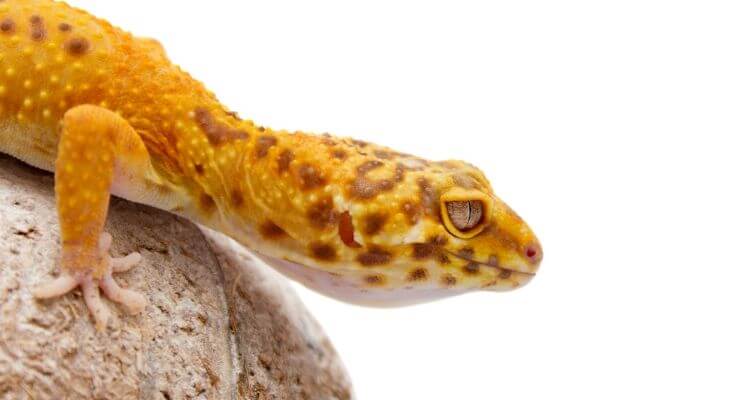Just because you’re a busy nurse doesn’t mean you don’t want a pet. We get it! Pets can be great companions and a nice break from a long day at work.
For me personally, I’ve always wanted a pet but thought I would be too busy to take care of them.
Many other nurses are just like me and don’t have hours to devote to their pet each week.
I did some research here are several examples of pets that require minimal care and maintenance.
We hope this list can help you find the right pet for you and your busy schedule.
So what are the best pets for nurses? Here are the pets that made our list of best pets for nurses.
- Cat
- Guinea Pig
- Betta Fish
- Leopard Gecko
- Eastern Box Turtle
- A Low-Maintenance Dog
- Canary
Below we’re going to go through and talk about the pros and cons of each of our recommendations.
*disclosure some of the links on this site are affiliate links.
Best Pets for Nurses
1. Cat

Cats can have a reputation for being standoffish and spiteful, but in reality, they can be just as loving and lovable as dogs.
Cats can be great for those who have busy schedules and can’t spend a lot of time at home.
While cats are affectionate, they are also very independent, so they will be just fine lounging around at home on their own.
That being said, it’s important for you to spend enough time with your cat so that it becomes socialized and can develop a bond with you.
This could be some time before or after your shift; just make sure that the two of you can play and cuddle.
Another great thing about cats is that they clean themselves, so there’s no need to give them baths.
Cats also don’t need to be let outside to do their business, although it will be your responsibility to clean their litter box every other day or so.
Moreover, cats can get a bit mischievous if they are left alone for too long.
They still need stimulation, so get them some toys or a playmate, so they don’t scratch up your sofa or shoes.
Pros:
- They are affectionate.
- They are independent.
- They require minimal maintenance.
- There is no need for baths.
- They are social pets.
Cons:
- They can be mischievous if left alone for too long.
- You must keep up with litter box cleaning.
2. Guinea Pig

Guinea pigs don’t have the gross-out factor of mice, and they’re not aggressive as hamsters can be.
Instead, guinea pigs are cute little rodents that require less work while still providing that furry friend aspect.
These pets require a cage with at least four feet of space to roam around. A cage and accessories costs around $60 while the pet itself is about $30.
While most rodents are nocturnal, guinea pigs tend to nap throughout the day, so odds are that they’ll be up for some playtime with you after your shift ends.
This is a pet that doesn’t require a ton of social interaction (as a dog does), but it still appreciates socializing with its owner from time to time.
Guinea pigs aren’t big on biting or scratching so that shouldn’t be a worry. There is no wonder why these pets are so good for kids!
As morbid as it sounds, guinea pigs have shorter life spans, so you don’t have to worry about getting into a 15-year commitment with this pet.
Pros:
- They enjoy social interaction.
- The start-up cost is inexpensive.
- They are non-aggressive.
- They are not a nocturnal rodent.
- There is a shorter time commitment.
Cons:
- They can be loud and squeaky if neglected.
- You must regularly clean the cage.
3. Betta Fish

Compared to other types of fish, bettas are more manageable; plus, they’re more exciting than the standard goldfish.
They enjoy smaller fish bowls since their natural habitat consists of a puddle of water.
An interesting thing about betta fish is that they need to go to the surface of the water in order to get oxygen.
Therefore, there is less pressure to keep their fish bowl clean on a daily basis.
Busy nurses can get away with a particularly hectic week where they just didn’t have time to clean out the fish tank.
In addition, betta fish don’t require filtered tank water so you can simply use treated tap water in a modestly sized fish bowl.
The betta is the most minimal of minimal fishes.
Pros:
- It doesn’t need a pristine fish bowl.
- It is a gorgeous fish.
- It is an impressive alternative to goldfish.
- Upkeep is minimal.
- No filtered tank is needed.
Cons:
- You can’t pair them with other bettas.
- They only live for two to three years.
4. Leopard Gecko

So, this isn’t a furry friend, but it’s a companion that’s relatively easy to care for.
Leopard geckos are one of the most commonly recommended pets for beginner reptile owners.
That’s because they’re pretty small and only require a 15-gallon tank even as full-grown adults.
They are nocturnal, eliminating the need for special lighting, and they live off of a diet of insects.
It’s easy to find crickets and other bugs at your local pet store.
Throw a few rocks in there, and your new pet gecko has the trappings of a home away from home.
Moreover, these lizards are tame compared to other species, which is why they’re a favorite among kids.
Pros:
- They are beginner-friendly.
- No special lighting is needed.
- They are non-aggressive.
- They are relatively small.
- They eat a simple diet.
Cons:
- They can gross some people out.
- They are not a cuddle-friendly pet.
5. Eastern Box Turtle

You might have heard some people say that turtles are dirty or that they require lots of work.
However, the Eastern Box turtle is pretty low-maintenance. It’s one of the easiest turtles to care for, and it’s even a little cute.
These turtles feed off of both plants and insects, both of which are easy to find in your backyard or local pet store.
They can quickly adapt to different kinds of climate, so it doesn’t really matter where you live as long as you have the space for a tank.
Speaking of which, this turtle will love an outdoor enclosure that it can roam around in.
It will want something with dirt so it can dig holes as well as sunny and shaded spots.
If that’s not possible, you can still keep them in a tank; just make sure that it has a UVB light, so the temperature stays around 75 degrees Fahrenheit.
That being said, they’re not aquatic, so you won’t need a pool for them, although they would appreciate some shallow puddles to wade in.
Eastern Box turtles have a cool black and yellow shell, making it a pretty pet that you can admire.
They only grow to be about four to six inches long, so they’re manageable.
They can live to be about 35 years old, so be aware of that before committing to this pet.
Pros:
- They are adaptable to different environments.
- They are good for beginner reptile owners.
- They have minimal tank requirements.
- They are one of the more docile turtle species.
- They are small.
Cons:
- They have a long lifespan, so it’s a commitment.
- They require special UVB lighting.
6. A Low-Maintenance Dog

A dog might not be the first animal that comes to mind when thinking of low-maintenance pets but hear us out.
A smaller, more aloof breed might be just the ticket. Consider something such as a short-haired Chihuahua, which is fine staying home alone and doesn’t need a ton of grooming.
A French Bulldog or Boston Terrier are two other possibilities.
These dogs are on the smaller side and have calmer temperaments compared to more energetic breeds.
These pups have short hair, so there’s no need to take them to the groomers every two weeks. They’re also quiet and do well in apartments and smaller homes.
Since they’re small, they don’t need copious amounts of exercise nor do you need to spend a ton of money on bulk bags of dog food.
As long as you spend some time training these clever dogs, you should be able to come home to a tidy house and a happy pup. Nothing beats the unconditional love of a dog!
Pros:
- They are affectionate.
- They don’t need a lot of exercise.
- They have easy grooming and upkeep needs.
- They are quiet.
- They are well suited to apartment life.
Cons:
- They need outdoor time.
- They are social companions.
Related: 5 Best Dogs for Nurses
7. Canary

A bird might not seem to be an ideal choice for an easy-to-care-for pet, but some species such as canaries are actually pretty easy to own.
For one thing, they don’t like to be handled or taken out of their cage.
They find comfort in their personal environment, so you don’t have to feel bad about not letting them out.
In addition, they have a pleasant song, not an annoying chirp that you’ll resent after a few days.
Canaries are also beautiful birds with a bright yellow color.
There are different varieties of canary, so be sure to check the care and maintenance requirements for the kind you’re looking at.
There are actually three main types of canaries: Color, Song, and Type.
Type canaries are bred to look a certain way, color canaries are bred for a distinct color, and song canaries are classified by their song (loud, soft, trill, etc.).
You might be interested in a roller song canary, which produces noise while keeping its beak shut or only slightly open.
These will be softer and lower-toned singers, which will make you and your neighbors happy.
Pros:
- They can stay in their cages.
- There are different types to choose from.
- They have a melodious song.
- Upkeep is simple.
- They are a small, manageable size.
Cons:
- The cage needs regular cleaning.
- Different varieties have specific needs.
Final Thoughts

These seven pets are varied so there’s bound to be an option for you.
Always take your time when deciding to get a new pet and remember that there isn’t a pet out there that doesn’t require at least some effort.
Best of luck finding your ideal pet!
Related Articles

